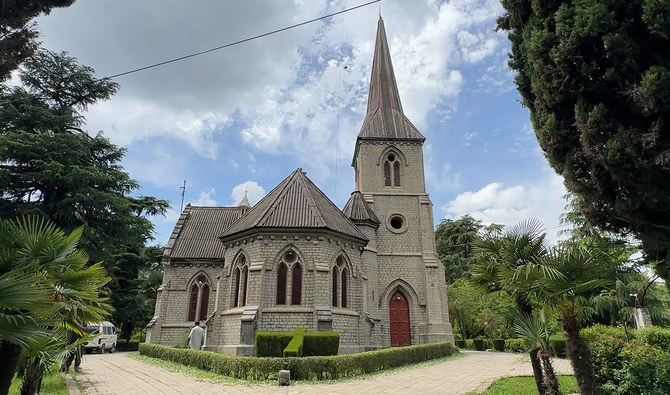ABBOTTABAD: Located in Abbottabad, a picturesque city set against the mountainous terrain of Pakistan’s northwestern Khyber Pakhtunkhwa province, the 160-year-old St. Luke’s Church has a tale to tell of religious unity and the region’s colonial history.
Built in 1864 during British rule, the Anglican-Protestant church was established to serve British officials serving in the Indian subcontinent. Construction of St. Luke’s commenced in 1854-55, with initial delays due to slow fund-raising and then a brief interruption due to the Indian Rebellion of 1857. It was completed and then consecrated by the Bishop of Calcutta in 1864.
Despite disruptions during the partition of British India in 1947 and the birth of Pakistan, the church has continued to host mass and retained many of its original architectural elements.
“During its construction, the church’s exterior was built with stones that were cut and laid by hand,” Rev. Rafiq Javed, a priest at the church appointed by the Diocese of Peshawar, told Arab News this week, explaining the history of St. Luke’s Church.
“The inner part [of the church] is built using mud, lentils, jute, sawdust, and paste made of eggs. The eggs were provided by the local people.”
St. Luke’s Church retains many elements from the time of its construction, such as stained-glass windows and old locks and their gigantic keys. A pipe organ stands in the church foyer.
Javed said the musical instrument had become unusable due to water damage some 50 years ago but its sound was once well known across the Abbottabad valley.
The church walls display plaques dating back to 1865 and serving as a memory of fallen British soldiers. One also comes across a metallic device permanently fixed on one of the stairs at the church’s entrance that was used by British troops to remove mud from their shoes before going to the main hall for worship.
The local Christian community says the church property was donated by Queen Victoria, empress of India, and one of its gates was named after her. The church property comprises the vicar’s home as well as staff quarters for caretakers of the building.
The church seats up to 150 worshippers, expanding into the outdoor area to accommodate larger crowds during special occasions such as Christmas and Easter.
Christianity, the third largest religion in Muslim-majority Pakistan, is followed by 1.27 percent of the population, according to the 2017 Census. The community has roughly equal proportions of Catholics and Protestants, with a small number of Eastern Orthodox and Oriental Orthodox Christians as well. There are around 4,000 Christians in Abbottabad, according to local estimates.
Javed the priest said the building of the church was a community effort:
“At the time, the people who lived here included Hindus and our Muslim brothers as well and they also lent a hand in building this church. The eggs [to make paste] were provided by the local Hindu and Muslim communities.”












